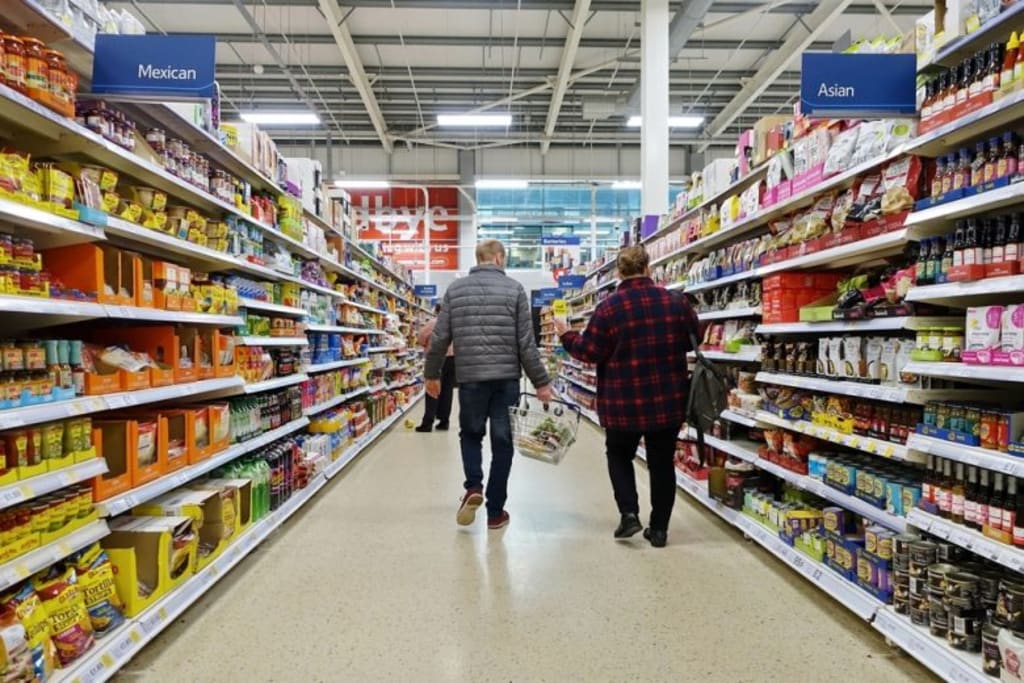
A number of different environmental organisations have come to an agreement to work in collaboration to help tackle greenhouse gas emissions and climate impact produced by the UK food and drink sector. The organisations which include Wrap, the World Wildlife Federation as well as eight other supermarkets are looking at ways in which they can refduce the enviromental impact of the products they sell.
There are many steps which can be taken to try and improve the situation. One of which could be to drastically reduce the amount of packaging used for different products when they are sold in supermarkets. Research has shown that many times there is a small product which is packaged in large ammounts of packaging, e.g. there may be different fruit and vegetables on the shelves which may be packaged in a polystireine tray as well as having a plastic film coating on top. These items are hard to recycle or downgrade and so may just be put in normal rubbish or just dropped on the street by some consumers. As these take a very long time to downgrade, if this regularly happens, large piles of different kinds of litter will appear which is hazerdous for different kinds of wildlife as well as the enviroment.
There have been cases where there have been birds who have had their beaks caught in different kinds of netting or fish and aquatic creatures who have had different rubbish items caught amongst their feathers and other parts of their body. This can make it extremely difficult for them to feed themselves as well as their young meaning that there is a danger to their lives if it is not corrected quickly.
UK GHG food emissions fell by 12% between 2015-2020, but the rate of reduction needs to increase by 60% to meet GHG sector target by 2030.Over the years, as the amount of rubbish and other toxic substances has increased so has the amount of greenhouse gas which is being produced. This has put the planet on a path which has seen temperatures around the world rising year on year. If this continues, the polar ice caps will melt which will lead to large ammounts of flooding around the planet. Different areas of the world could soon be submerged under the water which will mean that there is less and less of the planet that humans can occupy.
It is estimated that 35% of territorial emissions of different greenhouse gases in the UK has been caused by the consumption of different food products as well as the inadequate disposal of different forms of packaging. This has meant that urgent action needs to be taken to help drive down emissions and maintain the planet that we inhabit, not just for ourselves but for our children and future generations.
The organisations with in the collaboration are hoping to take the sector closer towards a net zero target so that they can reduce the amount of pollution and global warming around the world to help save the planet.
In an unprecedented move of precompetitive collaboration in the highly competitive retail sector, eight leading retailers are coming together with WRAP and WWF to standardise how they measure and report on emissions data. This standardisation will remove an important barrier to the food sector’s ability to meet challenging environmental targets, and will increase trust and confidence in using this information to take action on high-impact areas. The collaboration will enable the sector to identify and address challenges that are too big or complex for individual businesses to tackle successfully alone.
Harriet Lamb, WRAP’s CEO explains: “We need to transform our food and drink system if we are to stand any chance of achieving our net zero goals and mitigate the worst impacts of the climate crisis. This is the challenge of our generation, and it is encouraging to see the UK’s leading retailers stepping up to this challenge with focus and determination. We’re looking forward to cracking the nut of consistent measurement and reporting on greenhouse gas emissions in food and drink supply chains (scope 3), so that we can unlock action to reduce those emissions at pace and at scale.”